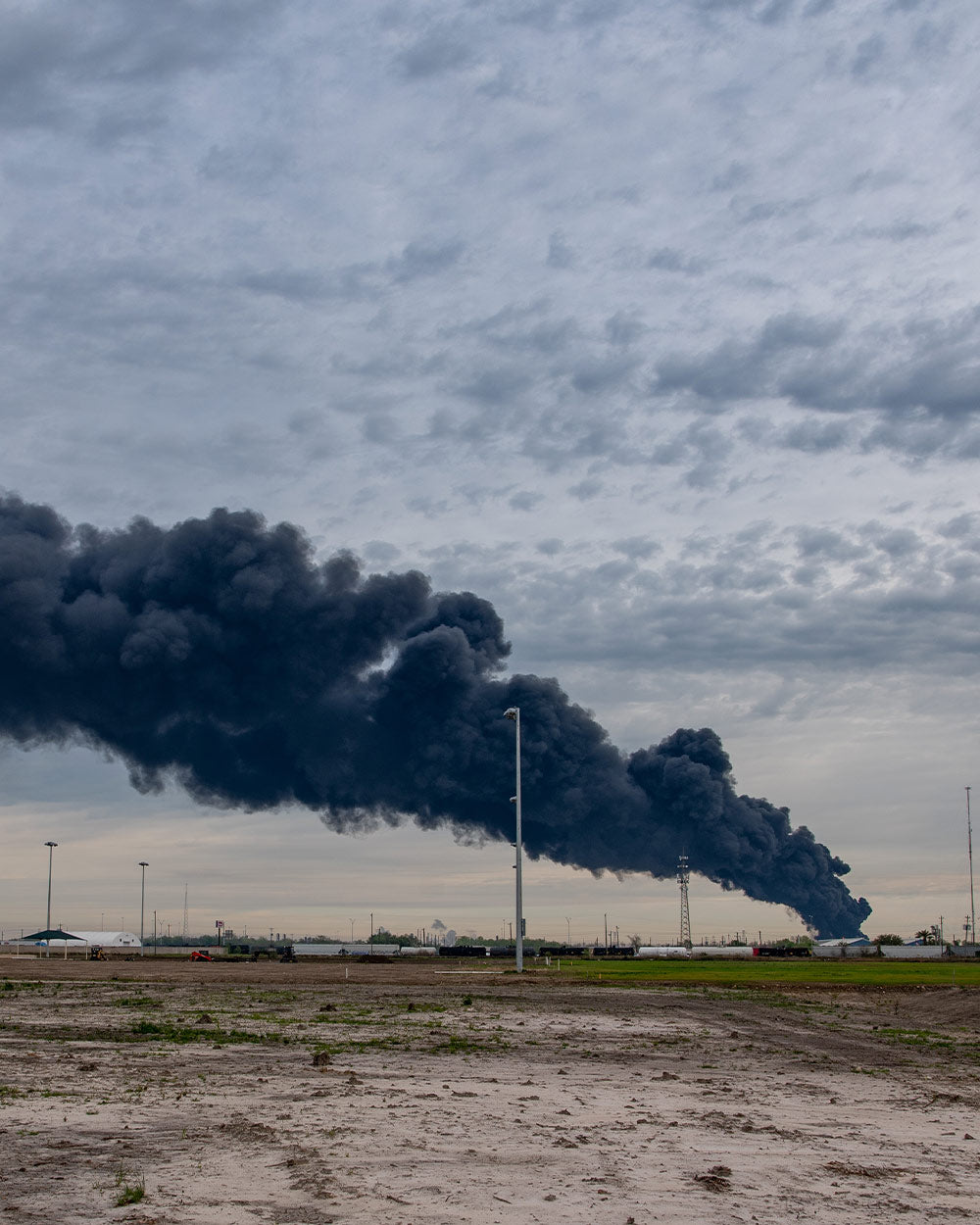Texas Bill Proposes Fines for Multiple Environmental Complaints from Residents
Matthew Russell
A proposed bill in Texas could fine residents for making multiple environmental complaints that don't lead to enforcement action. Senate Bill 471, introduced by Republican Sen. Drew Springer of Muenster, would mean that if residents file more than three complaints to the Texas Commission on Environmental Quality (TCEQ) within a calendar year, they could face a fine, Inside Climate News reports. However, the bill does not specify the amount of the fine but states that it would be "less than or equal to the cost" of investigating the complaint. TCEQ would be responsible for deciding when to impose fines and the amount.
Critics warn the bill could discourage residents from reporting pollution, while supporters say it targets "abusive" complaints that "weaponize the system."
 Photo: Adobe Stock / Tim Malek
Photo: Adobe Stock / Tim MalekTexas has been experiencing droughts and water scarcity, which are expected to worsen due to climate change and increased demand.
Linda Hunter, who lives on a 224-acre ranch, told The Texas Tribune that she has complained to TCEQ several times about dust clouds and water runoff from nearby concrete batch plants, which she claims have disrupted the once-tranquil area, kept her awake at night, and caused her asthma to flare up. She worries the proposed bill will discourage residents from reporting environmental problems.
As some experts point out, responding to citizen complaints is a crucial part of TCEQ's job. Tim Doty, an independent environmental consultant and former TCEQ employee, told The Texas Tribune that slow responses to complaints may result in missed violations. Doty said that TCEQ can take weeks or months to resolve investigations. By the time the agency sends an investigator, the problem may have disappeared or changed. This means that a resident could receive a strike against them even though the problem they reported may have been a violation had the agency responded faster.
 Photo: Adobe Stock / Grindstone Media Grp
Photo: Adobe Stock / Grindstone Media GrpThe oil and gas industry is the largest contributor to greenhouse gas emissions in Texas.
Mary Evans, an economist and professor of public affairs at the University of Texas at Austin, and two colleagues analyzed citizen complaints made to TCEQ between 2003 and 2019. They published a study that found that investigations resulting from citizen complaints were two to four times more likely to find violations than those that were not prompted by complaints.
If a problem persists, residents are justified in filing multiple complaints. But if the bill becomes law, people may think twice before filing an investigation.
 Photo: Adobe Stock / Veronika
Photo: Adobe Stock / VeronikaThe Texas Commission on Environmental Quality can take weeks or months to resolve investigations.
TCEQ receives thousands of complaints each year and conducts over 100,000 investigations annually, issuing thousands of violation notices and assessing millions of dollars in administrative penalties. The agency also provides compliance support to small businesses and local governments.
During the bill analysis, TCEQ gave several examples of the type of excessive complaints that the bill intends to target, such as a person who filed 28 complaints against a landfill and two people who filed 28 complaints against two asphalt operations in 2022, the San Antonio Express-News reports. However, the handout did not provide enough information for news outlets to learn more about the complaints' nature.
Texans, like many other people around the world, are becoming increasingly concerned about the state of the environment. From water scarcity to air pollution, Texans are experiencing the effects of climate change and other environmental issues firsthand, The Texas Tribune reports. These concerns are not limited to environmental activists or policymakers but are shared by everyday Texans. In recent years, the state has seen an increase in public awareness and activism around environmental issues, highlighting the importance of a government and environmental oversight that is accessible to all.
One of the main environmental concerns in Texas is the state's heavy reliance on fossil fuels. The oil and gas industry is the largest contributor to greenhouse gas emissions in the state, and its operations have been linked to air pollution and water contamination. This has led to health issues for Texans, including respiratory problems, cancer, and birth defects. Additionally, the state has been experiencing droughts and water scarcity, which are expected to worsen due to climate change and increased demand.
 Photo: Adobe Stock / Mark Butler
Photo: Adobe Stock / Mark ButlerSenate Bill 471 may discourage residents from reporting environmental problems as climate change leads to worsening issues.
To address these concerns, Texans are calling for stronger environmental regulations and oversight. They are urging the government to take action to reduce greenhouse gas emissions, protect water resources, and promote renewable energy. However, many Texans feel that the government's response to these issues has been inadequate. Indeed, considering recent legislative efforts to shield the oil and gas community from climate initiatives, the Texas government is more closely aligned with the oil and gas industry, and could make it difficult to implement meaningful change.
If the proposed bill passes, it could discourage Texans from reporting pollution and could lead to missed violations due to slow responses to complaints. Citizen complaints are essential in holding polluters accountable, as investigations resulting from these complaints are more likely to find violations.
Residents are justified in filing multiple complaints if the problems they face persist. Texas Senate Bill 471 is an intimidation tactic that will discourage people from reporting environmental problems across the state. Click below and sign the petition to stop Texas from silencing environmental concerns!


 Photo:
Photo: